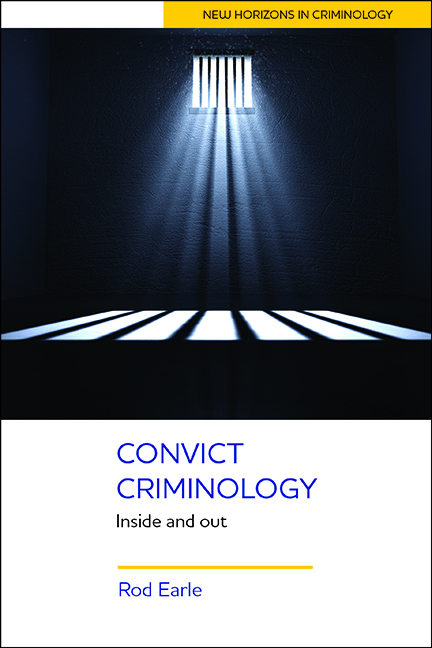Foreword
Published online by Cambridge University Press: 05 April 2022
Summary
In praise of an unusual and obvious idea
So, I am waiting for a lift in a soulless American hotel during yet another criminology conference. It is 1999, I am certain, but I do not remember where we are. Also waiting is a famous American criminologist and two younger conference-goers whom I assume are his PhD students as they appear to hang on his every word and laugh nervously at his fairly pedestrian jokes. One of the students asks him, “Have you heard of this convict criminology thing?” He hadn’t. “I guess they are ex-prisoners who are now criminologists and writing about prisons,” she says. Sceptically, the professor asks, “So, the argument is, what, that you can't really understand imprisonment unless you’ve been locked up yourself?” He pauses for a moment, contorts his face and looks down at his shoes while he digests this unusual idea for the first time. Then he lifts his eyebrows, holds out his arms, palms up and shrugs, “Well… they’re probably right.” The two students (and I) gasp to ourselves. Really!? Then, the criminologist follows this up, “But, I mean, what are we supposed to do with that? Go out and commit a crime? I think you two best stick to your secondary data analysis.” And, with a sharp exhale of breath, the three of them have another laugh at the professor's wit. Most likely, none of the three of them will give convict criminology another thought.
The same is certainly not the case with me. I would go on to think about convict criminology a lot over the next 15 years. I was there at one of the first ASC panels on the subject. (I thought it was the first, but then maybe it was just my first.) It might have been 1997. The room was nearly empty, so someone suggested we put our chairs in a circle. To break the awkwardness, the inimitable Chuck Terry quipped, “I feel like we’re at an AA meeting, ‘My name is Chuck and I’m a positivist.’” Since then, I’ve been to maybe close to a dozen panel sessions that were almost always filled to capacity, and always the most free-wheeling and enjoyable discussions at any criminology meeting.
- Type
- Chapter
- Information
- Convict CriminologyInside and Out, pp. xii - xivPublisher: Bristol University PressPrint publication year: 2016

